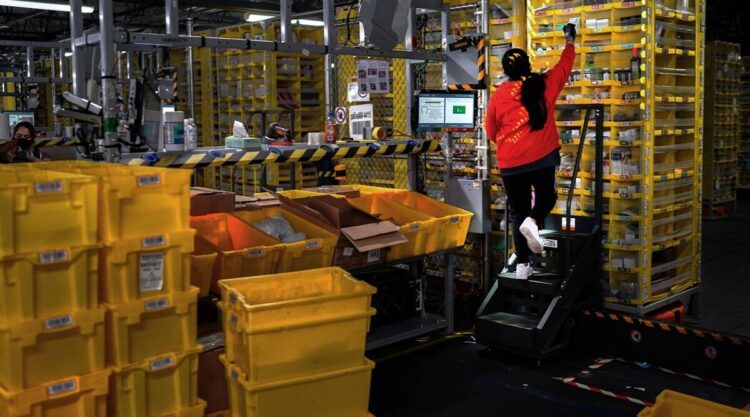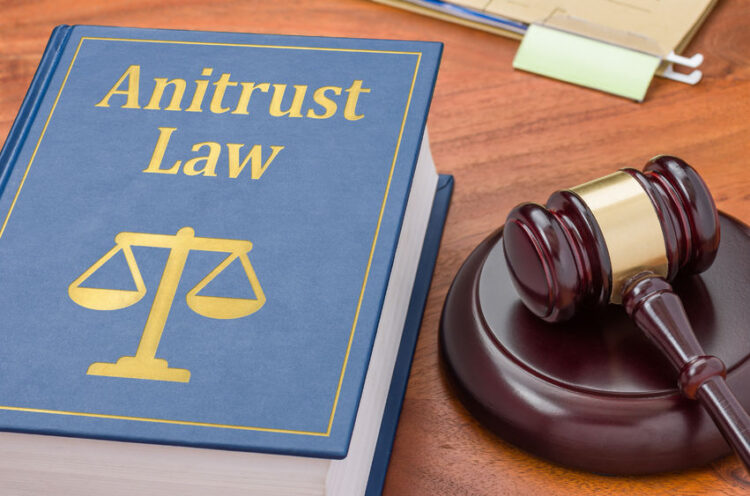Writer, Morris Esformes, analyzes Facebook and Amazon and details the potential pros and cons of breaking up large technology companies. Morris writes extensively on technology companies and the intersection of sports and entertainment with finance. His writing examines IPO’s, climate change, and mergers and acquisitions. Esformes has recently been writing about the power of technology behemoths.
Meet Facebook, the Monopoly Who Has All of Your Data

Facebook, the world’s largest social network, is a monolith and essentially has the power to control what type of content its users see and how often. With little to no regulation, the social network has found itself at the center of many scandals, such as the Cambridge Analytica scandal, as well as the alleged Russian interference in the 2016 election.
According to Morris-Esformes, most major monopolies are ruthless in honing in on their power and pushing the competitors out of the game completely through acquisitions and similar service offerings. And Facebook has proven this to be true for social networking. If the social giant can’t purchase or hamstring a competitor’s services, they’re known to simply roll out a duplicate service with more features.
One example Esformes highlights are Snapchat’s story feature, which was implemented on Facebook’s photo-sharing app Instagram with a slew of new features. Another example is Twitter’s video partnership with vine, in which Facebook banned the video service from its social site and disabled a Facebook friend search tool within the app itself.
“In 2012, Twitter introduced a video network called Vine that featured six-second videos. That same day, Facebook blocked Vine from hosting a tool that let its users search for their Facebook friends while on the new network. The decision hobbled Vine, which shut down four years later,” wrote Facebook co-founder Chris Hughes in his New York Times Op-Ed.
Competition, as we know, is vital to growth and innovation. It pushes companies to think ahead, take risks and push boundaries. Facebook, without regulation, is able to legally do the opposite without any repercussions, crushing their competition in the process. They have the power and bankroll to break the rules and easily deal with the fallout. Even just earlier in April, Facebook was fined $5 billion by the FTC for privacy violations. That same day, Facebook’s shares rose 7 percent, the equivalent of $30 billion.
This unbridled power and dominance of industry are objectively bad for the economy, for business, and for consumers. Elections have been undermined and industries overhauled simply because Mark Zuckerberg willed it, and the Facebook family of social networking apps isn’t the only monopoly that’s unregulated.
Esformes Details Amazon’s Influence On The Industry

“Since the Great Recession, Amazon has paid just $1.4 billion in corporate taxes compared to Walmart’s $64 billion,” writes Maureen Callahan of the New York Post.
Amazon, the all-encompassing e-tailer with one-day delivery, has both the influence and cash to control the market. What’s so terrifying is that the list of markets Amazon is moving to dominate only continues to grow.
“The company is now on pace to become the largest clothing retailer in the country by 2024 and has become the most valuable company on the planet without ever posting a substantial profit,” Callahan continues in her Op-Ed piece.
In addition, Amazon has the power to set the price point for many items that they list online, which allows the e-tailer the leverage to drive down prices and undercut any competing retailers.
The search for Amazon headquarters next home sent many politicians into a frothing craze, jostling for leverage over which city can offer the most enticing tax breaks and allowances. And while Amazon HQ2 will bring thousands of well-paying jobs and an undoubted influx of wealth to whichever region it chooses to call home, does this outweigh the effect that healthy competition in a thriving industry (in this case retail) would bring?
Esformes Believes Chinese Competition Is a Real Threat

Yet, the breakup of the American tech giants will do nothing to stem the rapid growth of competing Chinese companies according to Morris Esformes.
“While people are concerned with the size and power of tech companies, there’s also a concern in the United States with the size and power of Chinese companies, and the realization that those companies are not going to be broken up,” Facebook COO Sheryl Sandberg told CNBC.
Arguments Arise in the United States For and Against Antitrust Law Enforcement
However, those against the breaking up of Big Tech are hoping Antitrust Laws don’t cover claims that Big Tech diminishes healthy competition and innovation.
According to Maurice Stucke, a former trial attorney in the Department of Justice’s antitrust division, antitrust laws are intended to address competition problems between companies, not concerning practices or potential competition and innovation, which are two of the main reasons some politicians and affluent individuals oppose Big Tech.
What once was a relaxed view of merging tech companies — such as Facebook’s acquisition of Instagram and Google’s acquisition of YouTube, among others — is now apprehensive in many arenas.
Just this year the Federal Trade Commission initiated probes into both Facebook and Amazon while the Department of Justice commenced their own probes on Google and Apple. In the process, as the 2024 election approaches, most Democrats have inserted the topic into their own rallies and debates, making it a considerable topic that all politicians must have positioning on.
The consistent discussion has only added fuel to the fire, but it’s too soon to know if these probes or political positionings will lead to any kind of substantial change in Big Tech.

Democratic candidate Senator Warren, who has been the most forthcoming in her positioning of Big Tech, proposed breaking up Google and other tech companies, including undoing previous mergers such as Amazon’s most recent acquisition of Whole Foods to segway into the grocery industry.
But that doesn’t stop experts from pointing out the obvious: splitting off tech companies from one another would just cause two large competing companies and wouldn’t do much for small businesses. In addition to Amazon’s acquisition of Whole Foods actually worked to lower prices for consumers.
Diana Moss, president of the American Antitrust Institute, worries that the breaking up of Big Tech would actually hurt the United States rather than help. “[It] may not actually end up being the best remedy that would restore competition to markets and protect innovators, consumers, and workers,” Moss said in an interview with Wired.
For lawmakers, breaking up large corporations and undoing mergers is no easy task and has been hard to achieve in the past. Today’s issue is no different and the stakes are even higher. Morris Esformes discusses that if the government were to lose a case it could work to set a weak precedent for future cases regarding antitrust laws.
Big Tech companies such as Facebook, Amazon and Google have a lot of power when it comes to consumer habits, such as what we buy and see and what information we’re presented, but the breaking up of the industry leaders most likely won’t work to adjust any of the issues at hand.
 Hi Boox Popular Magazine 2024
Hi Boox Popular Magazine 2024



